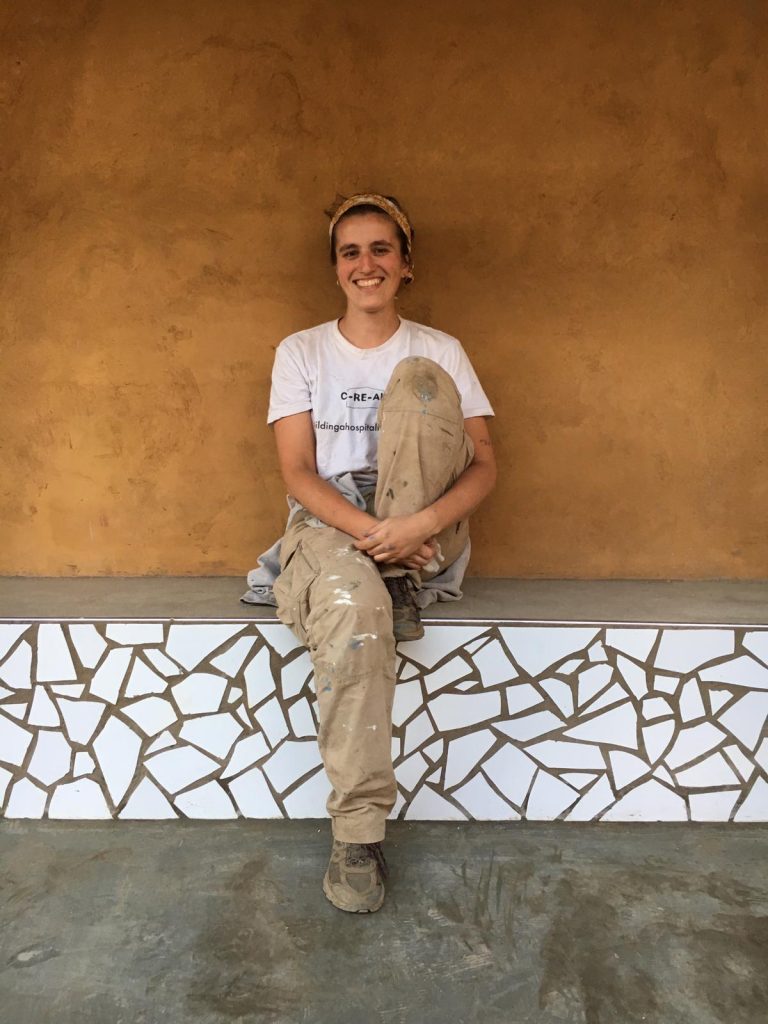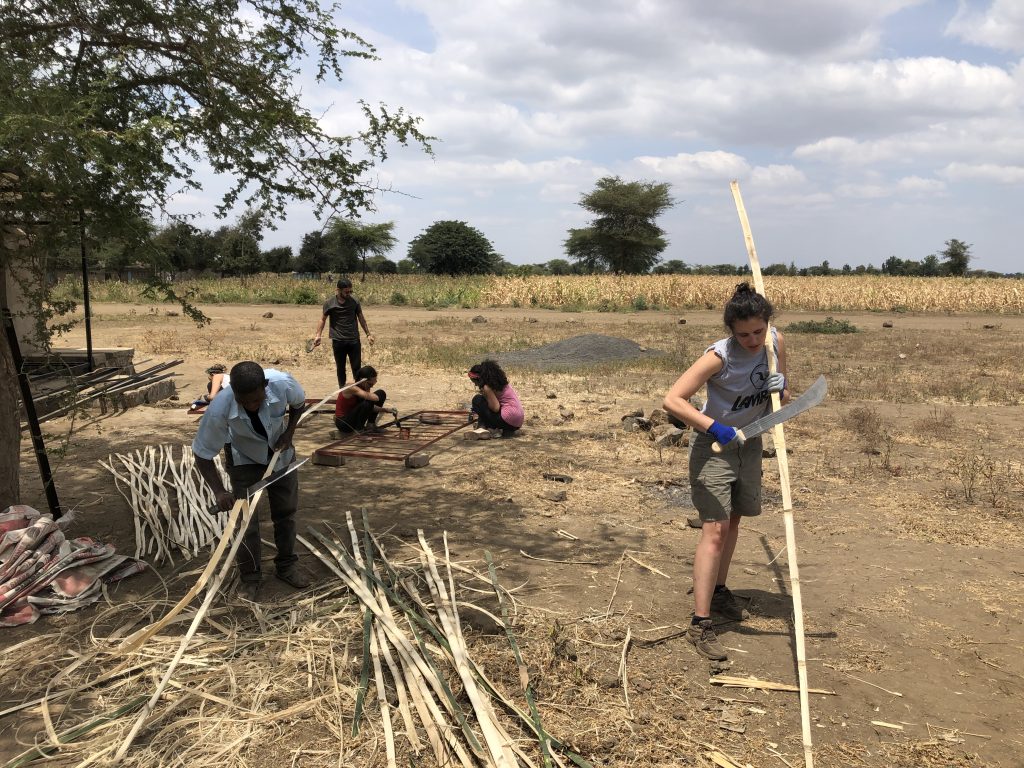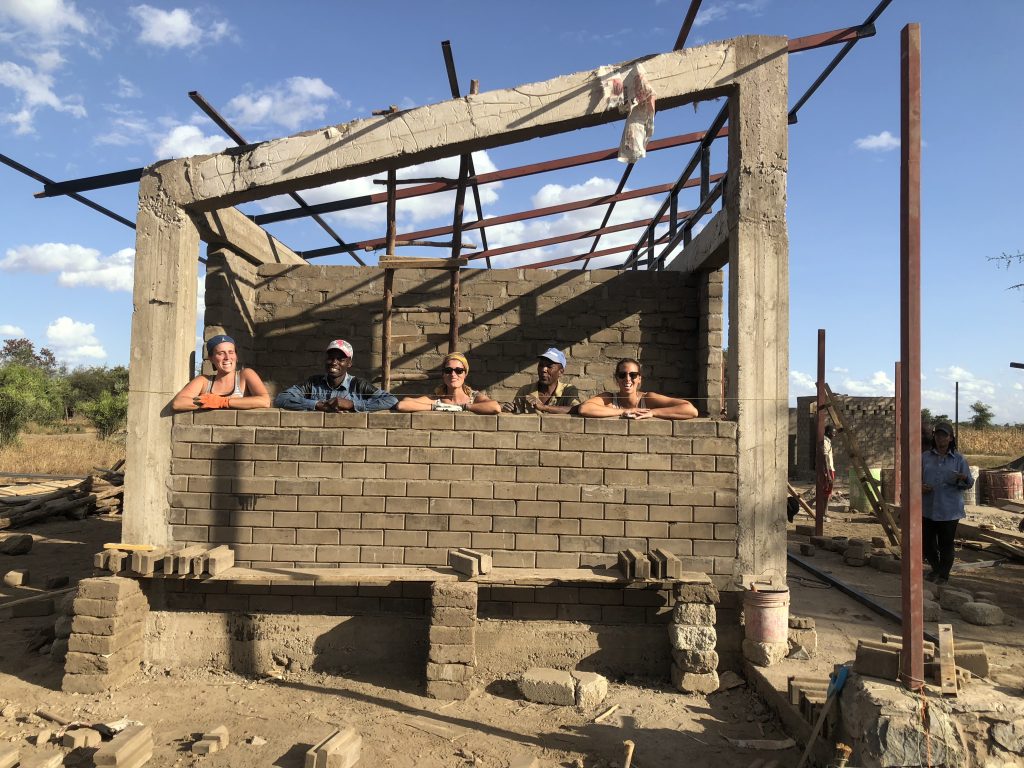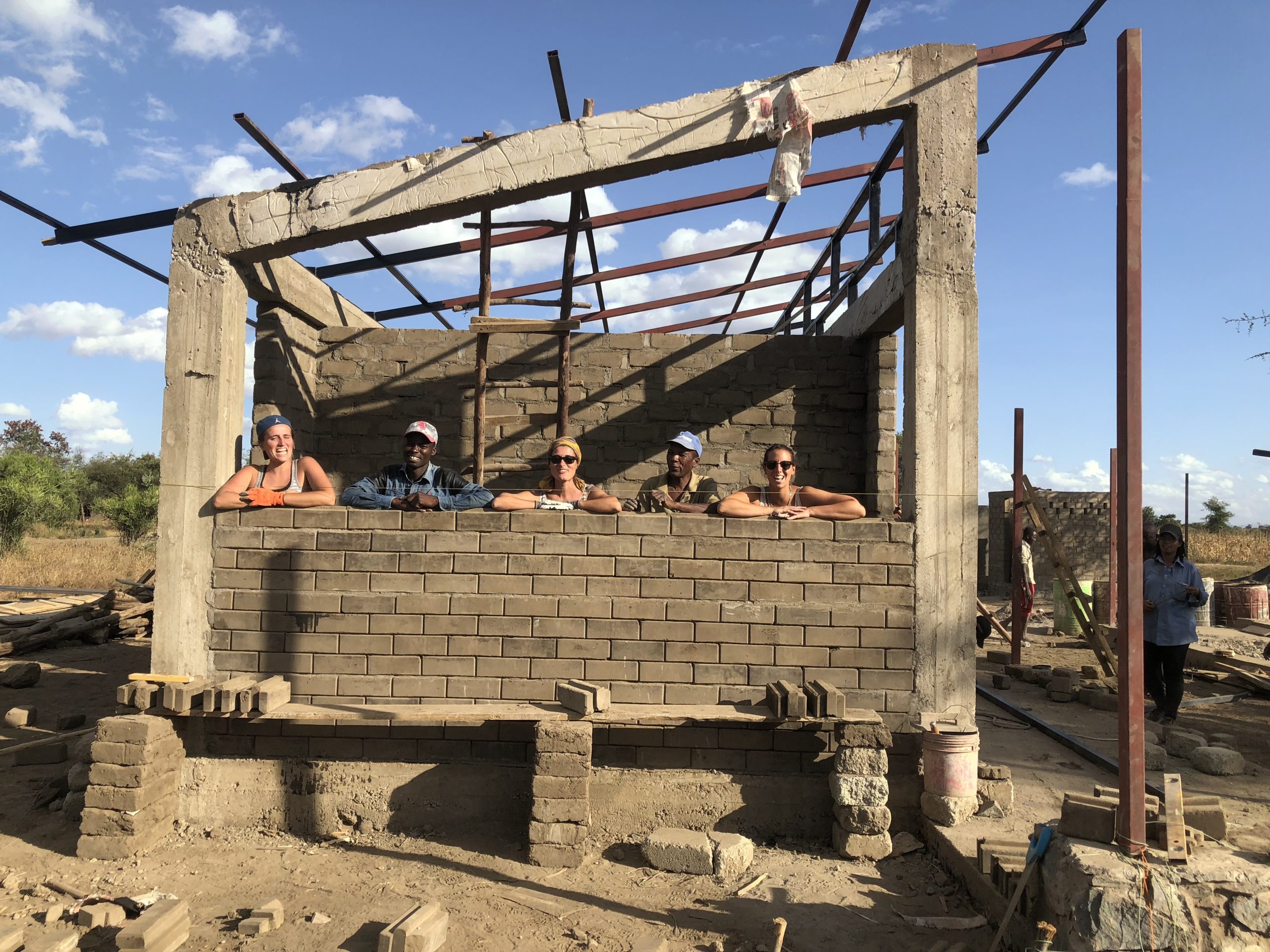Exciting News! Our Alumni Interviews are Back!
As we embark on the new academic year of 2023-2024, we are thrilled to kick off our Alumni Interview series once again. Our first featured alumna is the talented Valentina Riverso, a remarkable graduate of the Master’s in International Cooperation Sustainable Emergency Architecture (MICSEA) program. She proudly received Universitat Internacional de Catalunya’s prestigious “Best Transformative Project” award for her outstanding work on the “Toilet Block for Themi School, Tanzania.” In our interview, we asked her the standard Alumni Interview questions, along with a special one about her project for the Themi School. 🌍📚✨
What have you been working on since you’ve graduated from the program?
Since my graduation, I have been actively engaged in various endeavors related to my interests in social enterprise, participatory architecture, and sustainable building practices. For my internship, I collaborated with rise International, a social enterprise based in Lesotho, and then I worked with them for two years. During this period, I played a key role in project implementation, including capacity building, facilitating participatory design workshops, and overseeing design and construction processes.
Fueled by my passion for participatory architecture and sustainable building materials, I co-founded a non-for-profit organization called POA Projects. Our organization’s main focus is on designing sustainable architectural projects using participatory approaches, with the aim of fostering innovation and replicable construction techniques in vulnerable contexts.
Recently, I have joined ASF-UK (Architecture Sans Frontières – UK) as an Associate. ASF–UK is a non-profit design organization with a mission to empower urban professionals and communities, fostering their active involvement in co-producing more equitable cities. As an Associate, my main responsibility is to actively support ASF-UK and its partners in their endeavors, aiming to contribute to the organization’s theory of change and the overarching objective of promoting fairer cities.
In summary, since graduating from the program, I have been dedicated to making a positive impact in the field of sustainable architecture and social enterprise, collaborating with various organizations and pursuing projects that align with my passion for community engagement and environmental responsibility.
Is the work field in any way different from what you expected when you first graduated from the masters?
Yes, the work field has been quite different from what I initially envisioned after completing my master’s program. When I graduated, I had high hopes for an on-site, immersive experience during my internship, but the Covid-19 pandemic brought unforeseen challenges. My cohort and I had to adapt to a remote internship, which meant I couldn’t physically be in the country or work closely with the team as I had hoped.
However, this unique situation taught me invaluable lessons. I learned the importance of asking questions and seeking guidance from the local team, even from a distance. Trusting their knowledge and expertise became crucial, as they offered invaluable insights into the context and helped me navigate through unfamiliar territories.
Moreover, the remote experience taught me the significance of adaptability and resilience in the face of unexpected circumstances. I had to think creatively and find new ways to contribute effectively. As a result, I’ve become more open-minded and willing to embrace change.
Despite the challenges, this experience has been transformative. I’ve learned that even in remote settings, meaningful contributions are possible through effective communication, collaboration, and a strong sense of teamwork.
Overall, this journey has reinforced my passion for the field and has made me even more determined to make a positive impact in the lives of communities, regardless of the circumstances. It has shown me the importance of continuous learning and maintaining a flexible mindset, which I believe will be invaluable as I progress in my career.
What advice would you give to our current students in the masters program about their next steps?
My advice to current students would be to proactively build their network, develop diverse skills, and uphold ethical principles.
Networking with professionals, alumni, and organizations can offer invaluable insights and open doors to potential opportunities. I encourage them to attend conferences, workshops, and networking events to expand their circle and learn from experienced experts in the field.
Additionally, I firmly believe that cultivating a diverse skill set beyond your primary area of interest is highly valuable. These attributes can complement your expertise and make you more versatile in your role, allowing you to contribute effectively in various capacities.
Lastly, always keep in mind the core values and principles you learned during your studies. Upholding ethics, demonstrating empathy, integrity, and a genuine commitment to making a positive impact should serve as your guiding compass throughout your career.
Once you graduated from the MICSEA what made you decide on the field of work you are in?
After completing my master’s degree, I was determined to make a positive contribution to the development of vulnerable communities in various impactful ways. My vision encompassed engaging in projects that involved constructing essential infrastructure and undertaking awareness-raising initiatives on critical topics like WASH (Water, Sanitation, and Hygiene), sustainable materials utilization, and the creation of inclusive cities. This strong aspiration ultimately drove me to co-found POA Projects alongside like-minded architects and engineers who share the same passion for social design.
At POA Projects, we firmly believe in the power of inclusive participation as a cornerstone for achieving equitable and sustainable development. We recognize the pivotal role architects play in seeking solutions for social, economic, and environmental challenges. Our collective enthusiasm for social design fuels our dedication to creating positive change and empowering vulnerable communities.
Furthermore, I sought to deepen my expertise in participatory design and planning principles, which led me to collaborate with an esteemed organization like ASF- UK. Working with ASF-UK provides me with valuable opportunities to explore and integrate participatory design approaches effectively across various built environment practices. This, in turn, advances our mission of creating fairer cities and ensuring that the communities we serve have an active voice in shaping their environments.
You have just been awarded by Universitat Internacional de Catalunya‘s Best Transformative Project for “Toilet Block for Themi School, Tanzania” can you tell us about it and what does this recognition mean?
Receiving the “Best Transformative Project” award from Universitat Internacional de Catalunya for our initiative, the “Toilet Block for Themi School, Tanzania,” holds profound significance for our team. This serves as a validation of our efforts and reinforces our commitment to helping vulnerable communities in Tanzania and beyond.
The recognition acknowledges the countless hours, dedication, and passion that we have invested in this project. It affirms that our approach to creating sustainable solutions for essential facilities like toilet block is making a positive impact on the lives of the people we aim to assist.
Beyond the honor itself, this award also provides us with much-needed support to continue our mission. The acknowledgment from a reputable institution like Universitat Internacional de Catalunya encourages us to reach even greater heights and fuels our determination to expand the positive impact we can make.




